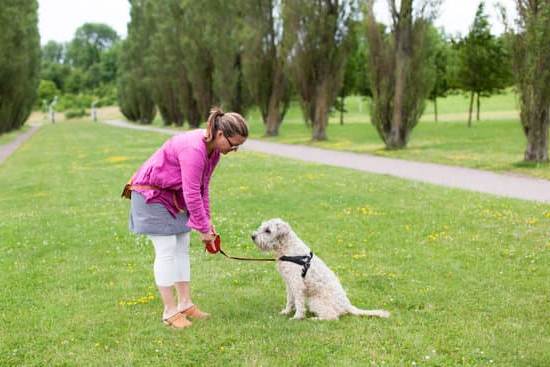Is attack dog trainer liable for the actions of the dogs they train? Attack dog training is a highly specialized discipline that involves training dogs to protect and defend in high-risk situations. However, this unique line of work also comes with potential legal liabilities. In this article, we will explore the role of an attack dog trainer and the potential liability associated with their work.
The legal responsibilities of attack dog trainers are significant, as they must adhere to specific laws and regulations governing the training and handling of attack dogs. Failure to meet these requirements can result in serious consequences, including potential legal liability for any harm caused by trained attack dogs.
Furthermore, we will delve into case studies where attack dog trainers have been held liable for the actions of their trained dogs, shedding light on the real-world implications of their work. Additionally, we will explore the various training methods used by attack dog trainers and ethical considerations related to the use of attack dogs in their line of work.
By examining industry standards and best practices, we aim to provide tips and strategies for minimizing liability and reducing the risk of legal action.
The Legal Responsibilities of Attack Dog Trainers
Legal Requirements for Attack Dog Trainers
Attack dog trainers are subject to a range of laws and regulations that govern the training and handling of aggressive or guard dogs. These regulations vary by location, but generally involve licensing, certification, and compliance with animal welfare standards. In some areas, attack dog trainers may also be required to carry liability insurance to cover any potential damages resulting from the actions of their trained dogs.
In addition to these general requirements, attack dog trainers must also adhere to specific guidelines related to the training methods used, the behavior and temperament of the trained dogs, and the control measures in place when the animals are not actively engaged in their protective duties.
Potential Consequences of Non-Compliance
Failure to comply with these legal requirements can have serious consequences for attack dog trainers. Legal penalties may include fines, suspension or revocation of professional licenses or certifications, and even criminal charges in cases where neglect or mistreatment of animals is involved. Furthermore, if an attack dog trained by an unlicensed or non-compliant trainer injures a person or damages property, the trainer could be held financially liable for those damages.
For these reasons, it is essential for attack dog trainers to stay informed about their legal responsibilities and ensure that they remain in full compliance with all applicable laws and regulations at all times. This not only reduces the risk of legal repercussions but also promotes safe and ethical practices within the industry.
Case Studies
In recent years, there have been several high-profile cases where attack dog trainers have been held liable for the actions of their trained dogs. These cases serve as important examples of the potential legal repercussions that attack dog trainers may face if their dogs cause harm to others.
One such case involved a well-known attack dog training facility that was sued after one of its trained dogs severely injured a passerby. The victim alleged that the attack was a result of the trainer’s negligence in properly controlling and supervising the dog during training sessions. The court found the trainer and facility liable for failing to adhere to industry standards and best practices, ultimately resulting in a substantial settlement for the victim.
Another notable case centered around an attack dog trainer who used controversial training methods that resulted in aggressive behavior in a trained dog. This behavior ultimately led to an attack on a neighbor, resulting in serious injuries. The court found the trainer liable for using unethical training techniques and failing to consider the potential risks associated with aggressive behavior in attack dogs.
These cases highlight the importance of proper training methods and ethical considerations in the work of attack dog trainers. It is evident that failure to meet legal responsibilities and adhere to industry standards can have serious consequences, both financially and legally, for trainers if their trained dogs cause harm to others.
- List of notable cases where attack dog trainers have been held liable:
- Well-known attack dog facility sued after trained dog severely injures passerby
- Trainer held liable for using controversial training methods leading to an aggressive attack
- Importance of proper training methods and ethical considerations in liability cases
Training Methods and Ethical Considerations
Attack dog trainers use a variety of training techniques to train dogs to protect their handlers, property, or in some cases, trained for military or police work. These techniques are designed to instill discipline and control in the dogs while also teaching them to respond appropriately to potential threats. Some of the common training methods used by attack dog trainers include:
- Positive reinforcement: This method involves rewarding the dog with treats, praise, or toys when they exhibit the desired behavior, such as following a command or responding appropriately to a threat.
- Clicker training: A form of operant conditioning that uses a sound (a click) to mark when the dog has performed the correct behavior, followed by a reward.
- Obedience training: This involves teaching the dog basic commands such as sit, stay, come, and heel. It is essential for ensuring that the dog responds to its handler’s commands during high-stress situations.
Ethical considerations surrounding the use of attack dogs revolve around ensuring that these animals are treated humanely and do not pose an unreasonable risk to others. Trainers must prioritize the welfare of their dogs and ensure that they are not subjected to unnecessary harm or distress during training. Additionally, it is crucial for trainers to assess the temperament and suitability of each dog for attack training before commencing with their instruction.
The use of forceful or aggressive methods in training can be ethically concerning and may increase the likelihood of aggression towards people or other animals. As a result, ethical trainers strive to use methods that prioritize positive reinforcement and build mutual respect between handler and canine. By taking into account both legal responsibilities and ethical considerations in their training methods, attack dog trainers can minimize their liability and contribute to responsible pet ownership.
Liability and Compensation
In the event of a dog attack, the question of whether an attack dog trainer is liable for the actions of their trained dogs often arises. This is a complex issue that involves legal considerations, industry standards, and ethical concerns. While there are no straightforward answers, it’s important to understand the potential legal repercussions for attack dog trainers and the compensation available to victims in such cases.
When a dog attack occurs, the legal liability of the attack dog trainer is determined by various factors, including the specific circumstances of the incident, the laws and regulations governing dog training in that jurisdiction, and any negligence on the part of the trainer. In some cases, if it can be proven that the attack was a result of negligent or inadequate training by the trainer, they may be held liable for any resulting injuries or damages.
Compensation for victims of dog attacks can vary depending on the severity of their injuries, emotional distress, and other related losses. In many jurisdictions, victims may be entitled to seek compensation for medical expenses, lost wages due to inability to work following an attack, pain and suffering, and other damages. The ability to recover compensation from an attack dog trainer typically depends on establishing their liability for the incident.
| Legal Considerations | Potential Compensation |
|---|---|
| The circumstances of the incident | Medical expenses |
| Laws and regulations in jurisdiction | Lost wages due to inability to work |
| Negligence on part of trainer | Pain and suffering |
Industry Standards and Best Practices
When it comes to training attack dogs, there are industry standards and best practices that trainers should adhere to in order to mitigate liability. These standards and practices are put in place to ensure the safety of the public and to prevent any potential legal issues that may arise from the use of attack dogs.
One important industry standard that attack dog trainers should follow is proper certification and licensing. It is essential for trainers to have the necessary credentials and permits to work as a professional attack dog trainer. This not only demonstrates their expertise in the field but also ensures that they are aware of the legal requirements and regulations pertaining to their work.
Additionally, best practices for attack dog trainers include thorough documentation of training procedures and the behavior of the dogs under their care. Keeping detailed records can serve as evidence in the event of a liability claim, demonstrating that the trainer has followed proper protocols and taken necessary precautions in their training methods.
Another crucial aspect of industry standards is ongoing education and training for attack dog trainers. Staying updated on new techniques, laws, and ethical considerations is important for maintaining best practices in this field.
By following these industry standards and best practices, attack dog trainers can reduce the risk of liability and legal action, ensuring the safety of both their trained dogs and the general public.
| Industry Standards | Best Practices |
|---|---|
| Proper certification and licensing | Thorough documentation of training procedures |
| Ongoing education and training | Demonstration of expertise |
Mitigating Liability
Proper Documentation and Agreements
It is essential for attack dog trainers to protect themselves legally by ensuring that they have proper documentation and agreements in place. This includes having clients sign waivers and contracts that clearly outline the potential risks involved with attack dog training. These documents should also specify the responsibilities of the owner in handling the trained attack dog, as well as the consequences of any misuse or neglect.
Thorough Screening of Clients
One effective strategy for mitigating liability is to thoroughly vet potential clients before agreeing to train their dogs. Attack dog trainers should conduct background checks on clients to ensure that they have a clean record and are responsible individuals who are capable of handling a trained attack dog. By being selective about their clientele, trainers can reduce the risk of placing their trained dogs in the hands of individuals who may misuse or mishandle them.
Continuous Education and Training
To minimize liability, attack dog trainers should prioritize continuous education and training not only for the dogs but also for themselves. Staying updated with the latest industry standards, best practices, and legal regulations is crucial for ensuring that trainers are operating within legal boundaries. Additionally, ongoing education can help improve safety protocols, refine training techniques, and enhance overall professionalism, thereby reducing the likelihood of legal action against the trainer in case of an incident.
By implementing these tips and strategies, attack dog trainers can actively work towards minimizing their liability and reducing the risk of facing legal action related to their training practices.
Conclusion
In conclusion, the liability of attack dog trainers is a complex and multifaceted issue that requires careful consideration of legal responsibilities, ethical considerations, and industry standards. The role of an attack dog trainer is crucial in ensuring that trained dogs are safe, well-behaved, and properly controlled to prevent potential harm to others. However, as highlighted in the article, attack dog trainers can be held liable for the actions of their trained dogs under certain circumstances.
The legal responsibilities of attack dog trainers are governed by laws and regulations that they must adhere to in order to mitigate liability. Failure to meet these requirements can result in severe consequences, including legal action and compensation for victims of dog attacks. It is essential for attack dog trainers to fully understand their legal obligations and take proactive measures to ensure compliance with industry standards and best practices.
Furthermore, ethical considerations surrounding the training methods used by attack dog trainers also play a significant role in determining liability. Employing humane and responsible training techniques is not only crucial for the well-being of the dogs but also for minimizing potential risks associated with aggressive behavior.
By adhering to industry standards and best practices while prioritizing ethical considerations, attack dog trainers can effectively mitigate their liability and contribute to the safety of both the public and the animals they train.
Frequently Asked Questions
What Happens if My Dog Bites a Dog Trainer?
If your dog bites a dog trainer, there could be legal repercussions depending on the circumstances. It’s essential to take responsibility for your dog’s behavior and work with the trainer to prevent future incidents.
Is It Legal to Train a Dog to Attack on Command?
It is not legal to train a dog to attack on command in many jurisdictions. This kind of training can pose a serious risk to public safety and may result in severe legal consequences for the owner.
What Are the Red Flags When Hiring a Dog Trainer?
When hiring a dog trainer, red flags may include trainers who guarantee quick results, use punishment-based techniques, or lack proper certifications and experience. It’s crucial to prioritize positive, force-free training methods and ensure the trainer is reputable and knowledgeable.

Welcome to the blog! I am a professional dog trainer and have been working with dogs for many years. In this blog, I will be discussing various topics related to dog training, including tips, tricks, and advice. I hope you find this information helpful and informative. Thanks for reading!





